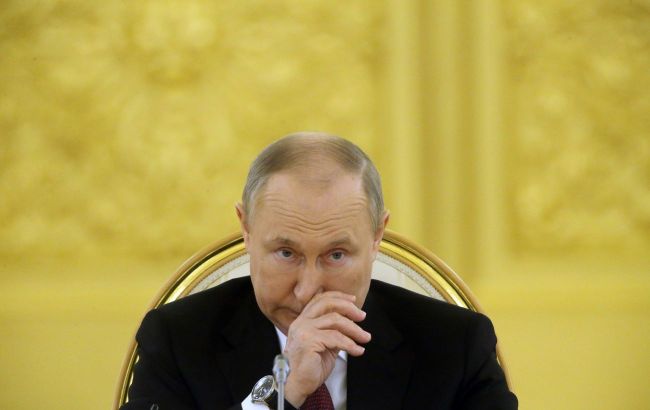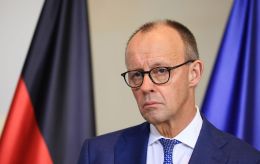Not to appear too old: Kremlin thouroughly selects Putin's rivals in 2024 elections
 Photo: Russian dictator Vladimir Putin (Getty Images)
Photo: Russian dictator Vladimir Putin (Getty Images)
In the Administration of the President of the Russian Federation, they have decided on the so-called "rivals" of the Russian dictator Vladimir Putin in the presidential elections of 2024. The main criterion is that the politicians must be over 50 years old, reports Meduza.
According to two sources close to the Kremlin, one of the main selection criteria for "rivals" in the elections is age. Among the registered candidates, there should not be politicians under the age of 50. According to officials in the Presidential Administration, the presence of such candidates on the ballot could make Russians think that the 70-year-old Putin is "no longer the person who came to power with a firm hand."
"Candidates"
The Presidential Administration expects that, in addition to Putin, representatives of three parliamentary parties will participate in the elections: the Communist Party, the Liberal Democratic Party, and the New People party. At the same time, the leader of A Just Russia party, Sergey Mironov, has stated that his party will not nominate a candidate and will support Putin.
The Kremlin sees Gennady Zyuganov as the candidate from the Communist Party. Sources close to the Presidential Administration report that he is a familiar figure to Putin, with a high status as the leader of the party. However, Zyuganov has a limited electoral base within the Communist Party, and he won't attract new voters.
In 2008, Zyuganov received 17% of the vote, and in 2012, he received 18%. This stability is important for the Kremlin, as it plans for Putin to allegedly achieve a "record result" in the upcoming elections.
It is reported that the dictator is supposed to receive more than 80% of the votes with a turnout of over 70%.
The Kremlin intends for the leader of the Liberal Democratic Party, Leonid Slutsky, to become the candidate. Sources mention that this politician supports this idea, "loves PR," and wants to boost his personal popularity.
The situation with the candidate from the New People party is more complicated. The Kremlin would like the party's leader, businessman Alexei Nechaev, to run because he is seen as a "serious man in a suit, presentable, correct, but not very charismatic."
However, Nechaev himself understands that he won't be able "to secure many votes, and doesn't want to receive crumbs and be "Liosha with 2%." He wants the New People to at least secure third place in the 2026 State Duma elections. He believes that his low results in the presidential elections would hinder this goal.
Instead, Nechaev suggests Vladislav Davankov, the Deputy Speaker of the State Duma (RF Parliament - Ed.), who is currently running for mayor of Moscow. However, the Presidential Administration is not satisfied with this candidate.
Sources indicate that Davankov is 39 years old, and he loves PR, but a young and active candidate could make voters think about the President's age.
"It's not about the result (of Putin - Ed.) in the elections themselves, but about the perspective of the next three years when thoughts like, 'Putin is fine, but isn't it the time for someone younger to come?' might arise. The participation of young candidates could catalyze such thoughts," the media says.
According to a survey by the Russian Field company conducted in May of this year, age is the third most popular answer to the question of what Russians don't like about the current president. Only "Putin's softness" and his inattention to the country's internal affairs are more popular answers.
"Elections" in occupation
Although the Presidential Administration is already preparing for the Russian presidential elections in 2024, elections of various levels will first take place in the aggressor country, including by-elections for State Duma deputies, elections of regional leaders, and legislative body deputies. They will be held on September 10. Moreover, the occupiers want to conduct pseudo-voting on the occupied territories of Ukraine.
British intelligence noted that Russia wants to present the occupied territories as its "integral parts," which is why they plan to organize fake "elections" on the same day as the aggressor country's elections.
At the end of May, Russia made changes to the law, allowing "elections" to be held in the occupied territories.


